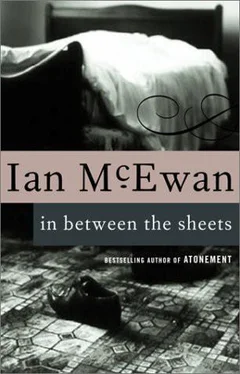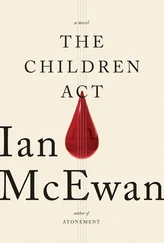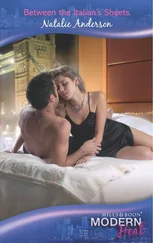After a suitable silence, I said, “Well…?”
From the day he arrives in Los Angeles Terence pleads with Sylvie over the phone to have a meal with him in a restaurant, and finally, wearily, she consents. Terence buys a new shirt, visits a hairdresser and spends an hour in the late afternoon in front of the mirror, staring at his face. He meets Sylvie in a bar, they drink bourbon. She is relaxed and friendly, and they talk easily of California politics, of which Terence knows next to nothing. Since Sylvie knows Los Angeles she chooses the restaurant. As they are leaving the bar she says, “Shall we go in your car or mine?”
Terence, who has no car and cannot drive, says, “Why not yours?”
By the end of the hors d’oeuvres they are starting in on their second bottle of wine and talking of books, and then of money, and then of books again. Lovely Sylvie leads Terence by the hand through half a dozen topics; she smiles and Terence flushes with love and love’s wildest ambitions. He loves so hard he knows he will not be able to resist declaring himself. He can feel it coming on, a mad confession. The words tumble out, a declaration of love worthy of the pages of Walter Scott, its main burden being that there is nothing, absolutely nothing, in the world Terence would not do for Sylvie. In fact, drunk, he challenges her now to test his devotion. Touched by the bourbon and wine, intrigued by this wan, fin de siècle lunatic, Sylvie gazes warmly across the table and returns his little squeeze to the hand. In the rarefied air between them runs a charge of goodwill and daredevilry. Propelled by mere silence Terence repeats himself. There is nothing, absolutely nothing, in the etc. Sylvie’s gaze shifts momentarily from Terence’s face to the door of the restaurant through which a well-to-do middle-aged couple are now entering. She frowns, then smiles.
“Anything?” she says.
“Yes yes, anything.” Terence is solemn now, sensing the real challenge in her question. Sylvie leans forward and grips his forearm.
“You won’t back out?”
“No, if it’s humanly possible I’ll do it.” Again Sylvie is looking over at the couple who wait by the door to be seated by the hostess, an energetic lady in a red soldier-like uniform. Terence watches too. Sylvie tightens her grip on his arm.
“I want you to urinate in your pants, now. Go on now! Quick! Do it now before you have time to think about it.”
Terence is about to protest, but his own promises still hang in the air, an accusing cloud. With drunken sway, and with the sound of an electric bell ringing in his ears, he urinates copiously, soaking his thighs, legs and backside and sending a small, steady trickle to the floor.
“Have you done it?” says Sylvie.
“Yes,” says Terence, “But why…?” Sylvie half-rises from her seat and waves prettily across the restaurant at the couple standing by the door.
“I want you to meet my parents,” she says. “I’ve just seen them come in.” Terence remains seated for the introductions. He wonders if he can be smelled. There is nothing he will not say to dissuade this affable, graying couple from sitting down at their daughter’s table. He talks desperately and without a break (“as if I was some kinda bore”), referring to Los Angeles as a “shithole” and its inhabitants as “greedy devourers of each other’s privacy.” Terence hints at a recent prolonged mental illness from which he has hardly recovered, and he tells Sylvie’s mother that all doctors, especially women doctors, are “assholes” (arseholes). Sylvie says nothing. The father cocks an eyebrow at his wife and the couple wander off without farewell to their table on the far side of the room.
Terence appeared to have forgotten he was telling his story. He was cleaning his nails with the tooth of a comb. I said, “Well, you can’t stop there. What happened? What’s the explanation for all this?” Around us the diner was filling up, but no one else was talking.
Terence said, “I sat on a newspaper to keep her car seat from getting wet. We didn’t speak much and she wouldn’t come in when we got to my place. She told me earlier she didn’t like her parents much. I guess she was just fooling around.” I wondered if Terence’s story was invented or dreamed for it was the paradigm of all his rejections, the perfect formulation of his fears or, perhaps, of his profoundest desires.
“People here,” Terence said as we left the Doggie Diner, “live so far from each other. Your neighbor is someone forty minutes’ car ride away, and when you finally get together you’re out to wreck each other with the frenzy of having been alone.”
Something about that remark appealed to me and I invited Terence up to my place to smoke a joint with me. We stood about on the pavement a few minutes while he tried to decide whether he wanted to or not. We looked across the street through the passing traffic and into the store where George was demonstrating the disco equipment to a black woman. Finally Terence shook his head and said that while he was in this part of town he would go and visit a girl he knew in Venice.
“Take some spare underwear,” I suggested.
“Yeah,” he called over his shoulder as he walked away. “See you!”
There were long pointless days when I thought, Everywhere on earth is the same. Los Angeles, California, the whole of the United States seemed to me then a very fine and frail crust on the limitless, subterranean world of my own boredom. I could be anywhere, I could have saved myself the effort and the fare. I wished in fact I were nowhere, beyond the responsibility of place. I woke in the morning stultified by oversleep. Although I was neither hungry nor thirsty, I ate breakfast because I dared not be without the activity. I spent ten minutes cleaning my teeth knowing that when I finished I would have to choose to do something else. I returned to the kitchen, made more coffee and very carefully washed the dishes. Caffeine aided my growing panic. There were books in the living room that needed to be studied, there was writing that needed completion but the thought of it all made me flush hot with weariness and disgust. For that reason I tried not to think about it, I did not tempt myself. It hardly occurred to me to set foot inside the living room.
Instead I went to the bedroom and made the bed and took great care over the “hospital corners.” Was I sick? I lay down on the bed and stared at the ceiling without a thought in my head. Then I stood up and with my hands in my pockets stared at the wall. Perhaps I should paint it another color—but of course I was only a temporary resident. I remembered I was in a foreign city and hurried to the balcony. Dull, white, box-shaped shops and houses, parked cars, two lawn sprinklers, festoons of telephone cable everywhere, one palm tree teetering against the sky, the whole lit by a cruel white glow of a sun blotted out by high cloud and pollution. It was as obvious and self-explanatory to me as a row of suburban English bungalows. What could I do about it? Go somewhere else? I almost laughed out loud at the thought.
More to confirm my state of mind than change it, I returned to the bedroom and grimly picked up my flute. The piece I intended to play, dog-eared and stained, was already on the music stand, Bach’s Sonata No. 1 in A minor. The lovely opening Andante, a series of lilting arpeggios, requires a flawless breathing technique to make sense of the phrasing, yet from the beginning I am snatching furtively at breaths like a supermarket shoplifter, and the coherence of the piece becomes purely imaginary, remembered from gramophone recordings and superimposed over the present. At bar fifteen, four and a half bars into the Presto, I fumble over the octave leaps but I press on, a dogged, failing athlete, to finish the first movement short of breath and unable to hold the last note its full length. Because I catch most of the right notes in the right order, I regard the Allegro as my showpiece. I play it with expressionless aggression. The Adagio, a sweet thoughtful melody, illustrates to me every time I play it how out of tune my notes are, some sharp, some flat, none sweet, and the demisemiquavers are always mis-timed. And so to the two Minuets at the end which I play with dry, rigid persistence, like a mechanical organ turned by a monkey. This was my performance of Bach’s Sonata, unaltered now in its details for as long as I could remember.
Читать дальше












